The United Nations warned Thursday that each day of renewed violence in Gaza pushes the safe return of the remaining hostages further out of reach.
Khaled Khiari, U.N. assistant secretary-general for the Middle East, told the U.N. Security Council that the resurgence of fighting endangers all civilians – especially the hostages, with only 24 believed still alive.
“Every day that passes drives us farther from the goal of bringing these captives safely back to their families,” Khiari said at the briefing.
Gaza’s health ministry reported at least 91 Palestinians killed and dozens injured in Thursday’s airstrikes alone, adding to hundreds lost since Israel’s bombardment resumed Tuesday.
Israel’s U.N. Ambassador Danny Danon, speaking at the same meeting, vowed the strikes on what he called Hamas strongholds would continue “until every last hostage is home.”
Acting U.S. Representative to the U.N. Dorothy Shea blamed Hamas for the renewed hostilities, saying it had “refused time and again to accept proposals to extend the cease-fire.”
“President Trump has been clear: Hamas must release all 59 hostages immediately – including American citizens – or pay a steep price,” she said. “We continue to stand with Israel as they defend themselves and push to secure the release of all hostages from Hamas captivity.”
Shea appeared before reporters ahead of the Security Council meeting with Eli Sharabi, an Israeli hostage released Feb. 8, who learned his British-born wife and two daughters had been killed in the Hamas incursion of Oct. 7, 2023.
Sharabi urged the United Nations and the Red Cross to act to bring home the remaining 59 hostages, including the bodies of those killed.
Britain’s deputy U.N. ambassador, James Kariuki, said London condemned as “unacceptable” a statement from Israeli Defense Minister Israel Katz warning of Gaza’s total destruction.
Kariuki said the January cease-fire deal had “fallen apart” with the Israeli airstrikes, and Britain urged both sides to urgently revive it as “the best chance we’ve seen to return the hostages to their families and end the suffering.”
Russia’s representative, Dmitry Polyanskiy, said there was no justification for Sharabi’s treatment but added: “We also grieve over all those who died as a result of the escalation, which has been going on for over 18 months now.”
“This endless vicious cycle of violence needs to end,” he said, noting Russia’s deep regret over the resumption of Israeli military operations.
Palestinian U.N. envoy Riyad Mansour offered condolences to Sharabi, saying Palestinians understood his pain “because we live it, they endure it every day,” while adding:
“If Netanyahu truly cared about the hostages, he would not have shattered the cease-fire that was allowing for their release.”
Israeli Prime Minister Benjamin Netanyahu’s decision to resume bombardments in Gaza has sparked protests in Israel, with a coalition of hostage families and Netanyahu critics regrouping and accusing him of exploiting the war for political gain.
The latest conflict began following Hamas’ Oct. 7, 2023 incursion on southern Israel, killing 1,200 people and taking more than 250 hostages.
Gaza health authorities say Israel has killed more than 49,000 Palestinians in the ensuing conflict, which has reduced the enclave to rubble.

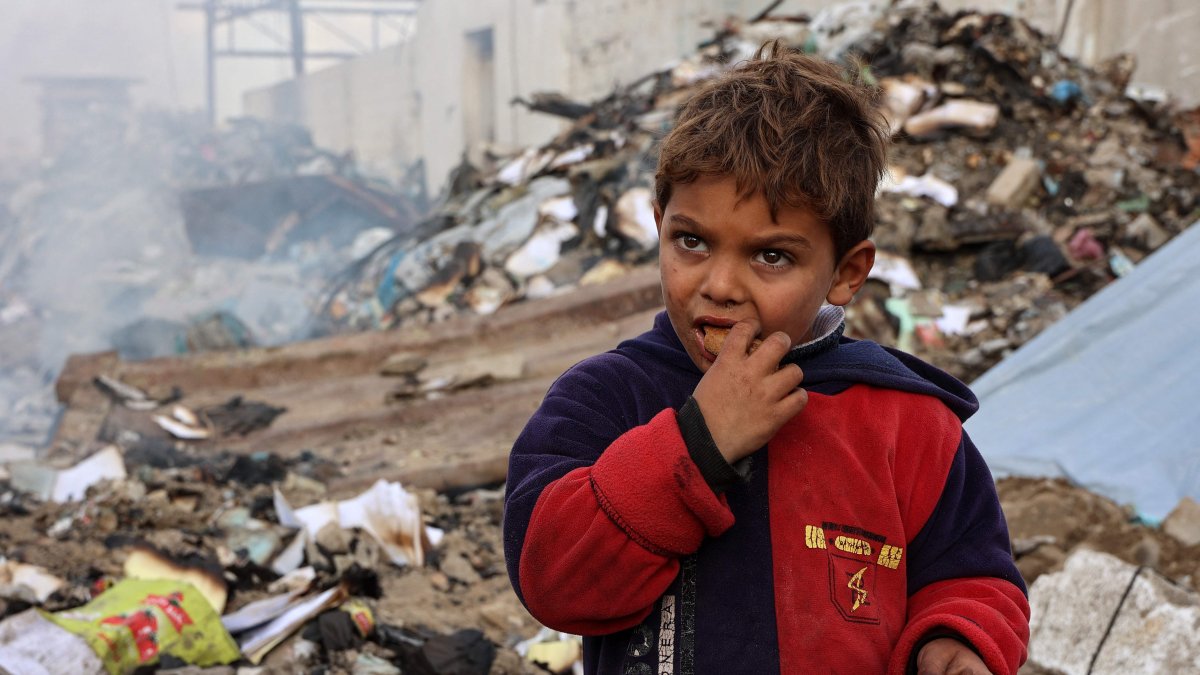


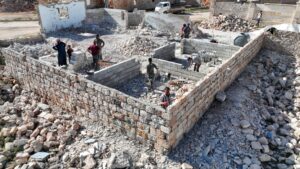
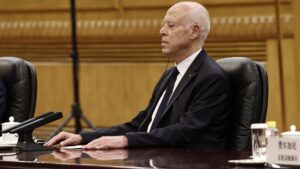

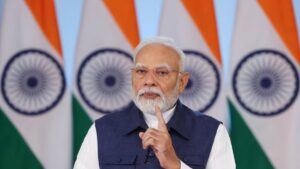
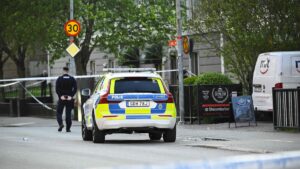
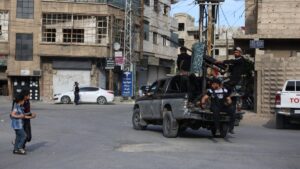
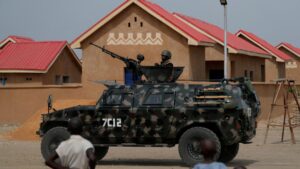

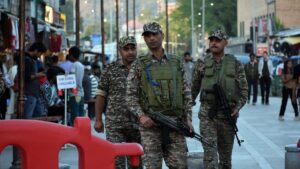
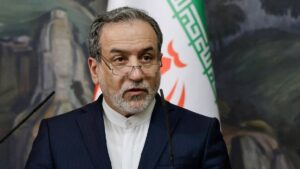

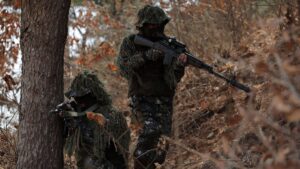

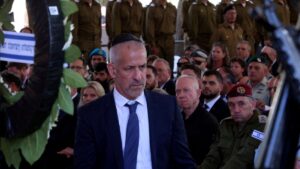
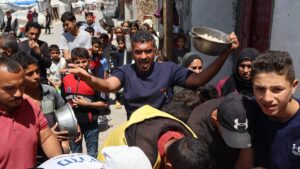
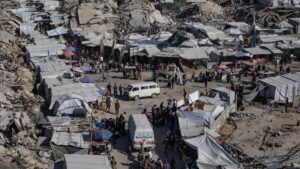
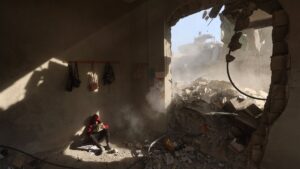




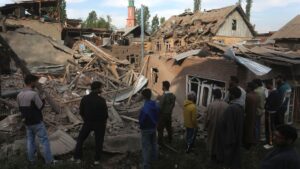
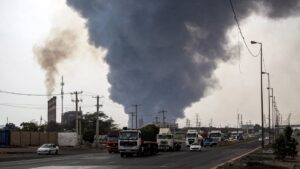





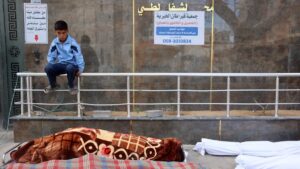



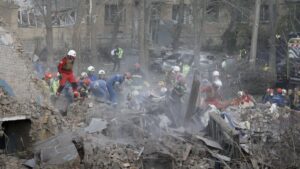





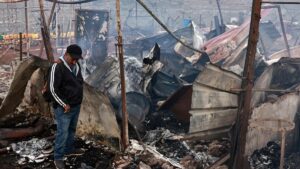
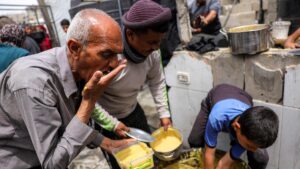
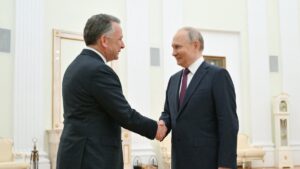


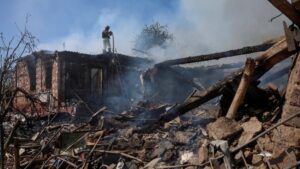

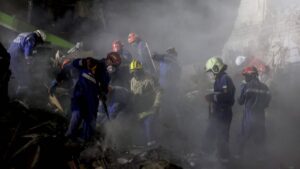

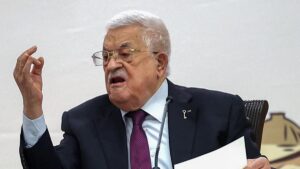
Be First to Comment